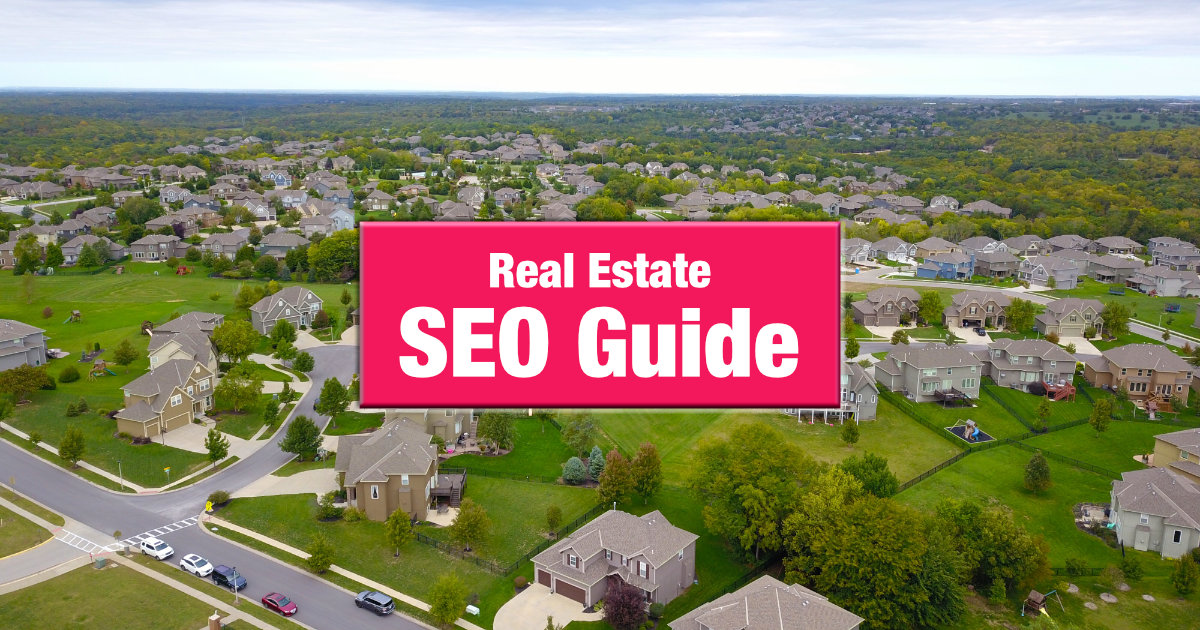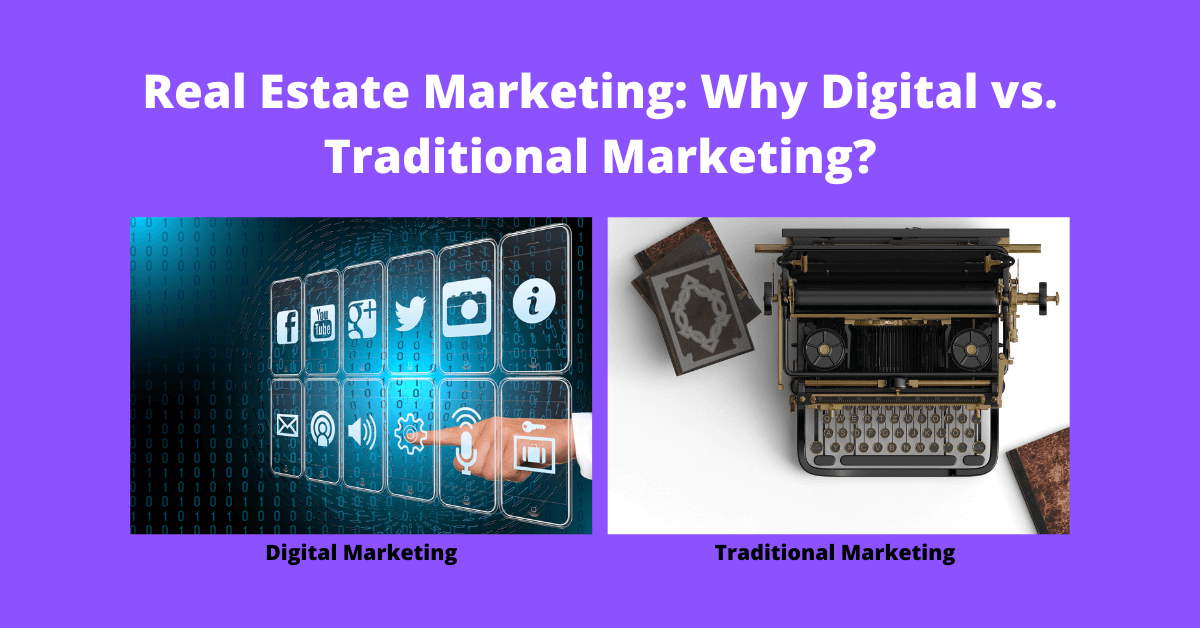The real estate industry is extremely competitive. In order to succeed you need to supercharge the leads and conversions you get through your real estate website. One way to do this is by designing a real estate website that converts visitors into leads. You should view your website as a lead machine. Yes, your real estate website is great for showcasing your properties. But if you want it to be effective it also needs to generate traffic, capture leads, get clients, and close deals. So how do you create a truly effective real estate website? That is what we will dive into below!
This guide is meant to dive deep into the critical features your real estate website needs in order to be a lead producing machine. Accomplishing this requires a lot of work and know-how. But do not fret, we will discuss the key components your site needs for conversions and leads.
What Exactly is a High-Converting Real Estate Website?
The main goal of a high converting website is to make visitors take desired actions, such as:
- Signing up for an account (such as to view listings or receive new properties by email)
- Submitting a lead or contact form
- Calling you or your real estate agency office
High-converting websites go beyond looking great. They focus on optimizing user experience with things like effective, persuasive copywriting, and the ability to easily navigate your site and find things they are looking for. Clearly showing your unique value proposition, messaging that talks to your specific audience, and persuasive calls-to-action can influence prospective clients into taking the next step (converting). High-converting websites typically leverage analytics and data-driven insights, continuous testing, and optimization techniques to boost lead generation.
How to design a real estate website that converts
Create a Responsive and Mobile-Friendly Real Estate Website
Research shows that the responsiveness and mobile-friendliness of your website can significantly impact user experience and conversion rates. Here’s how to optimize a real estate website for responsiveness and mobile-friendliness:
Embrace the Mobile Revolution
Many potential clients access the internet on their smartphones and tablets. So, it’s crucial to prioritize mobile optimization.
A responsive website design can adapt seamlessly to different screen sizes, providing a consistent and user-friendly experience across devices.
Prioritize Loading Speeds
Mobile users demand fast-loading websites. Optimize your website’s performance by minimizing image sizes, leveraging browser caching, and optimizing code. Compressing images and enabling lazy loading can drastically improve loading speeds, reducing bounce rates and boosting conversions.
Ease of Navigation in Small Screens
When it comes to mobile navigation, simplicity is key. A clean and intuitive menu that collapses neatly into a mobile-friendly icon always works. Ensure visitors can easily access property listings, search functionality, and other essential pages with just a few taps.
Thumb-Friendly Interactions
Consider the limitations of mobile screens and users’ thumbs as they navigate your website. Optimize buttons, links, and form fields to be easily clickable and tappable. Implement features like swipeable image galleries or one-touch contact buttons to enhance user convenience.
Test, Test, and Test
Regularly test your website across a range of devices and screen sizes to ensure optimal responsiveness. Address any layout or functionality issues promptly, providing a seamless experience for users regardless of their chosen device.
By prioritizing responsive design and mobile-friendliness, your website can adapt effortlessly to the ever-evolving digital landscape. Maximize user engagement, increase lead generation, and ultimately drive more conversions for your real estate business.
Focus On User-Friendly Navigation
A seamless and intuitive navigation system is the backbone of a high-converting real estate website. Potential clients should effortlessly find what they’re looking for with minimal challenges. Here are three key aspects to consider for user-friendly navigation:
Clear and Intuitive Navigation Menu
Create a concise and well-organized menu that guides visitors through your website effortlessly. Categorize properties by type, location, or price range, allowing users to quickly access relevant listings. Keep the menu visible and accessible on every page for easy navigation.
Organized Content and Subcategories
Arrange your content logically by employing subcategories to further refine property searches. For instance, create subpages for residential, commercial, or rental properties. Utilize filters to enable users to narrow down their preferences and find specific listings efficiently.
Implementing Search Functionality
Integrate a robust search feature that allows visitors to search by keywords, property characteristics, or location. Display search results with clear property previews, enticing users to explore further. Consider incorporating auto-suggest or predictive search to enhance the search experience.
How to Leverage Compelling Property Listings
Captivate buyers with irresistible details. The power of compelling property listings cannot be underestimated. Here’s how to captivate potential buyers with irresistible details and calls to action.
Enchanting Visuals
Painting a picture worth a thousand words. In real estate, a visually-driven industry, high-quality visuals are the key to catching a buyer’s eye. Showcase each property with stunning photography, engaging videos, and immersive virtual tours. Paint a vivid picture that entices buyers to explore further.
Persuasive Descriptions
The description of each property should be an art form in itself. Create persuasive narratives that highlight the unique features, benefits, and selling points of the property. Emphasize what sets it apart from the competition and make buyers envision their dream home.
Clear Calls-to-Action (CTAs) Help Guide Buyers to Take Action
Reliable real estate websites leave no room for confusion. Strategically place clear and visible calls to action throughout the property listings. Use enticing phrases such as “Schedule a Viewing,” “Request More Information,” or “Get in Touch Today” to prompt immediate action.
Interactive Tools
Enhance the buyer experience with interactive tools that add value. Offer mortgage calculators, neighborhood heat maps, or virtual staging options. These tools provide valuable insights and engage buyers, increasing the chances of conversion.
Testimonials and Success Stories – Building Trust and Credibility
Nothing speaks louder than satisfied clients. Incorporate testimonials and success stories within each property listing. Share the positive experiences of previous buyers to build trust and credibility.
By creating compelling property listings on your real estate website, you can enthrall buyers and motivate them to take the next step.
Integration with Real Estate CRM and Lead Generation Tools
Capturing leads and managing them effectively is important for real estate websites. Integrating your website with a reliable real estate Customer Relationship Management (CRM) system can streamline the lead management process and boost conversion rates. Here are the essential aspects of integrating a website with a CRM and utilizing lead generation tools:
Effective Lead Capturing and Management
Leads capturing and nurturing are paramount in the real estate industry. A customer relationship management CRM system can store and organize many aspects of your business, including:
- Contact information
- Tracking interactions
- Monitoring the progress of leads through the sales pipeline, among others
- Integrating the Website with a Real Estate CRM System
Integrating your website with a compatible real estate CRM system can enhance lead management efficiency. The integration facilitates seamless data synchronization between your website and CRM. As a result, all leads generated through your website are automatically captured and recorded in your CRM database. Integrating your real estate website with a CRM eliminates the need for manual data entry and minimizes the risk of missing out on potential opportunities.
Utilizing Lead Generation Tools and Forms
To maximize your real estate website, you may want to incorporate lead generation tools, such as:
- Contact forms
- Inquiry forms
- Newsletter subscriptions
Your visitors can leverage these tools to express their interest in properties or request additional information, providing you with valuable lead information. Optimizing these tools for user experience can promote user engagement and increase conversion rates.
Testimonials and Social Proof
Potential buyers or sellers who visit will undoubtedly be seeking to establish if you’re reliable by reviewing testimonies from previous clients. Satisfied clients are powerful endorsements and can significantly influence the decision-making process of new clients. Here’s how to leverage testimonials and social proof in a real estate website:
Building Trust and Credibility
Testimonials are personal statements from previous clients who have worked with you. They provide social proof that you are reliable, trustworthy, and competent. Ensure the testimonials are genuine and detailed, and include the client’s details to enhance authenticity.
Displaying Positive Reviews and Ratings From Previous Clients
Besides testimonials, showcasing positive reviews and ratings from reputable platforms can add further social proof. Reputable platforms, in this case, can include:
- Yelp
- Real estate-focused websites
Include snippets or summaries of these reviews on your website. Make sure to link the snippets to original sources for further analysis.
Incorporating Social Proof from Social Media Platforms.
Social media can help real estate businesses build trust and credibility. So, you may want to integrate social media feeds on your website to display the following:
- Real-time updates
- Interactions
- Positive comments from your followers
By incorporating social media proof, you demonstrate an engaged and active online presence, boosting your reputation further. As a best practice, testimonials and social proof should be prominently displayed on your real estate website, ideally on the homepage or a dedicated “Testimonials” page. By showcasing the positive experiences of your previous clients, you enhance your reputation to potential clients.
The Importance of a Blog and Educational Content
Successful real estate companies leverage blogs to offer valuable information to their audiences. Here’s some of what you can share with readers:
- Market trends
- Home-buying tips
- Neighborhood insights
- Local regulations updates, among others
By sharing educational content with your audience, you position yourself as an industry expert. Here’s what to keep in mind when developing a real estate website blog:
Engaging with Potential Clients
A blog allows businesses to engage potential clients on a deeper level through comments, feedback, and questions. Engaging your audience plays a vital role in demonstrating a commitment to customer service and fostering a sense of community within your website.
Establishing Industry Authority
Consistently publishing informative and well-researched articles helps establish topical or industry expertise, authority, and trust (EAT). Share your expertise, offer unique perspectives, and provide valuable insights that your audience can’t find elsewhere. Publishing insightful content attracts visitors back to your website for more information, updates, and tips.
Reaching Diverse Audiences
Since you specialize in the real estate field, you may be tempted to only cover real estate-related topics. However, you shouldn’t limit yourself — explore related topics or subjects to cater to a broader audience. For instance, you can publish content on home staging tips, renovation ideas, local events, and lifestyle content related to the areas you serve.
Optimizing for SEO
Search engine optimization helps you rank higher in search engine. So make sure your real estate website blog content and page content is optimized for search engines. Do keyword research to improve visibility in search engines and drive organic traffic to your real estate website.
Remember to focus on search intent first and search engines second. However, make sure your content is valuable and resonates with your target audience.
Why Speed Optimization is Crucial for Your Real Estate Website
To rank on search engines, speed matters a lot. Research shows that potential clients have little patience for slow-loading pages.
Potential clients will likely move on to other real estate websites if your website takes forever to load. So, optimizing your website for speed and performance cannot be overemphasized.
Potential clients expect instant access to information, so if your website doesn’t deliver, they’ll likely click away. Speed enhances user satisfaction and creates a positive browsing experience. In turn, increasing the likelihood of conversion.
How to Optimize Images, Minifying Code, and Leverage Caching
Several strategies can improve your website’s speed and performance. Reducing image size significantly reduces page load times. Optimizing images simply means compressing them without compromising quality.
Additionally, minifying code eliminates unnecessary characters, whitespace, and comments, streamlining your website’s codebase. By leveraging caching, your website can store specific elements locally on the user’s device. This reduces server requests, which facilitates faster loading.
Monitoring the Performance of Your Real Estate Website
Tools like Google PageSpeed Insights or GTmetrix can provide insights into your website’s speed and performance metrics. By identifying bottlenecks and addressing identified issues promptly, your real estate website will remain optimized for speed and performance. Always remember that speed is a key factor in search engine rankings.
Google and other search engines reward websites that offer a seamless user experience with higher visibility in search results.
Ready for the Next Step?
By implementing the strategies discussed in this guide, you can create a website that captivates and converts potential buyers. So, whether you’re revamping your existing website or starting from scratch, take the time to implement these features. Contact us today and discover how we can help you build a high-converting real estate website.
Related content:
-
Designing a Real Estate Website For Conversions and Leads

The real estate industry is extremely competitive. In order to succeed you need to supercharge the leads and conversions you get through your real estate website. One way to do this is by designing a real estate website that converts visitors into leads. You should view your website as a lead machine. Yes, your real…
-
Why SEO Content is Important for Real Estate Agents

If you are a real estate agent you surely have a million things on your plate. So carving out time to create content for your real estate agent website can seem like the last thing you want to do. But SEO content can be one of the most effective ways to generate leads and build…
-
Real Estate SEO | Powerful Guide for Real Estate Professionals

Are you a real estate agent or real estate investor trying to get found in Google search engine results? Do you want to get more exposure for your real estate listings? Or maybe you want to generate more leads and potential clients? If so, then effective real estate SEO is important for your real estate…
-
What is SEO in real estate?

SEO in real estate is a set of activities aimed at improving your ranking (and exposure) on search engines for specific, targeted keywords. Search engines are what people use to search for things online. These include Google Search, Bing search, DuckDuckGo, etc. SEO stands for search engine optimization. So taking a 50,000 foot view SEO…
-
10 Reasons Why a Real Estate Agent Needs Their Own Website

Being a real estate agent is a great profession. It is also one that offers a lot of potential to make a lot of money. But it is also a crowded and competitive space. So in order to be successful you need to stand out, get in front of as many potential clients as possible,…
-
Real Estate Marketing: Why Digital vs. Traditional Marketing?

Are you looking to grow your real estate business, get more leads, or get more clients? Or maybe you are a real estate developer looking to find real estate investment opportunities and funding for real estate deals? If so then you know you need to do marketing. You are probably aware that that digital marketing…



